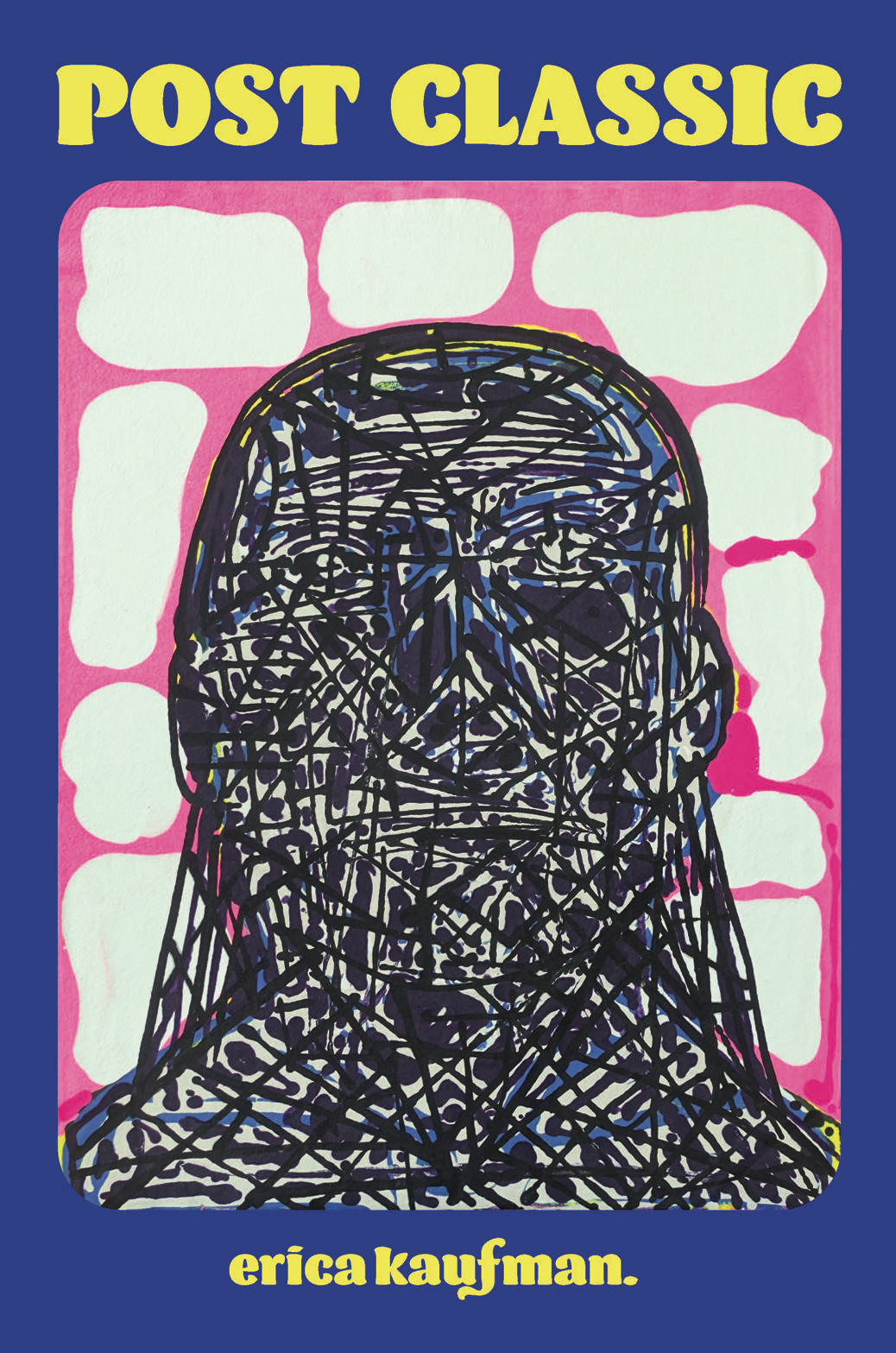POST CLASSIC
by erica kaufman
Following her 2011 collection INSTANT CLASSIC, erica kaufman returns with the fierce and fiery POST CLASSIC. It is juicy; it is adamant; it is “sapphic emo sewage.” Culling from homoerotics of the epic tradition, lesbian pulp, parodies of academe-speak, and texts of resistance, POST CLASSIC is as delicious as it is audacious.
POST CLASSIC tunes into the way supposedly radical thought and action becomes institutionalized and pacified. “sing to me o institutional hashtag,” kaufman invokes and then proceeds to offer us manifold rebellious, monstrous forms to rage against the neoliberal university cultural industry and refuses “to replicate the experience / of being summarized repackaged / for a world where spelling counts.”
How does atrocity linger and haunt? What is the use-value of fishnets? kaufman navigates these questions and more through her remix and remake of language, braided together with explorations of inherited trauma, post memory, and literary histories. She reveals with precision how systems of oppression and domination render living bodies invisible or devalued, only to capitalize on them once dead in the postmortem wake brought to you by the “memorial industrial complex.”
In the face of rampant violations, POST CLASSIC enters as a superheroic combatant in combat boots and “wrangles institutional gods.” This book torques with the packaged language used to quell us while pushing us toward a greater disobedience—one that takes playfulness and rigor in the same fist. Her lyricism is epic; epic quakes in comparison.
POST CLASSIC offers the reader new spaces of desire, merging desire with disobedience as a way to combat the order of the world. She disrupts conventional understandings of use and valuation, offering us latex, nail polish, and the chant: “this is victory this is war this is protest fatigue a brief gestural eulogy.”
kaufman shows us the stakes and shows us the way to confront, to confound, to exacerbate. She reorients ways of knowing away from an authorative historical that and toward a vast sensorium that rejects “vocabularies / of management.” In that rejection the poems folds together periphery and center, canon and margins, Paradise Lost and The Dyke Diagnostic Manual, to generate a grammar as strange as it is enticing, as humorous as it is revelatory. She inaugurates a recombinant revolution from which the lyric ingenue of her selections, arrangements, citations, and her own language both light the way and guide us through.
People are saying:
erica kaufman’s poems command me to follow the circuitous routes her words travel on the way to the occasion of a poem; I am swept along by her singular and sorrowful grammar. To read her is to know recombinant, reactive linguistic space, where poetry is coming from and always trying to get to. There’s something neurological about her style but then you have to map it onto literary and personal history ... and how is that done? Her “narrator without personality” is nonetheless wailing; she fears dying “gay and alone in the woods covered in ticks.” Holding the high concept and the bloody high stakes together is paradoxical; it’s hard. Only a master can do it. - Simone White
If disequilibrium is our difficulty to fit and fix new ideas into our minds, then erica kaufman has always been the solution. Part of the addictive qualities of these extraordinary new poems is not just the poet’s fresh concepts, but her genius ability to carve the spaces in our brains for her readers to understand and change how we see and act with the world around us. This is poetry to be shelved under Revolution. - CAConrad
About the Author:
erica kaufman is the author of INSTANT CLASSIC, censory impulse, and coeditor of NO GENDER: Reflections on the Life and Work of kari edwards and a collection of archival pedagogical documents, Adrienne Rich: Teaching at CUNY, 1968–1974. recent poems can be found in A Perfect Vacuum and P=Queue.

